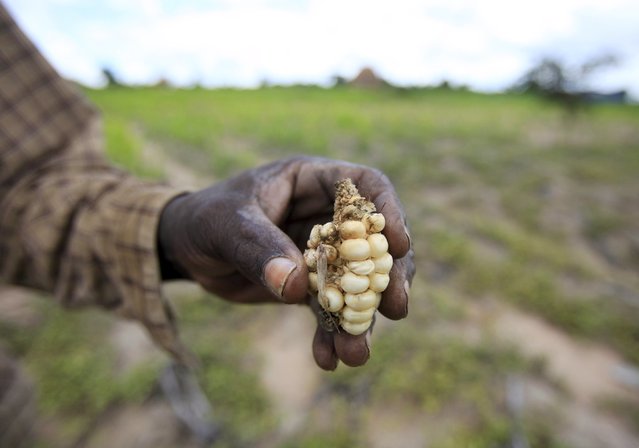
A Zimbabwean subsistence farmer holds a stunted maize cob in his field outside Harare, January 20, 2016. About 14 million people face hunger in Southern Africa because of a drought that has been exacerbated by an El Nino weather pattern, the United Nations World Food Programme (WFP) said on Monday. In Zimbabwe, 1.5 million people, more than 10 percent of the population, face hunger, WFP said. (Photo by Philimon Bulawayo/Reuters)
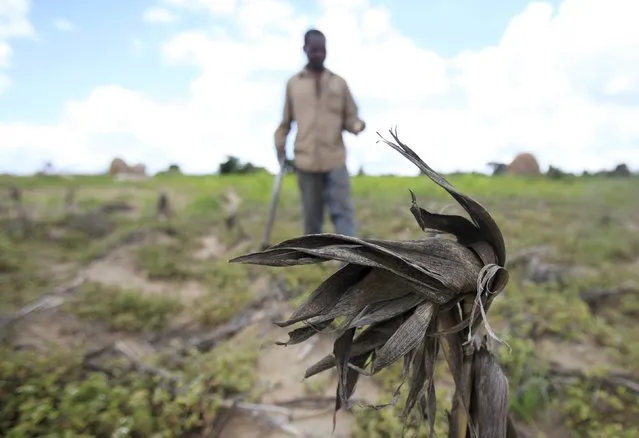
A Zimbabwean man walks through his maize field outside Harare, January 20, 2016. (Photo by Philimon Bulawayo/Reuters)
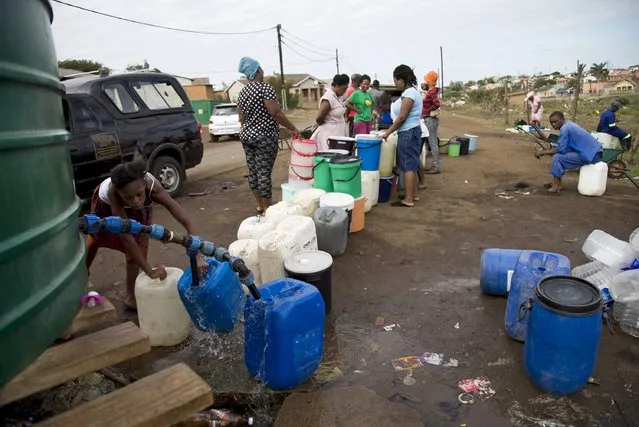
People queue to collect water from a tank after water to homes was cut off due to the drought in KwaMsane, northeast of Durban, South Africa January 20, 2016. (Photo by Rogan Ward/Reuters)
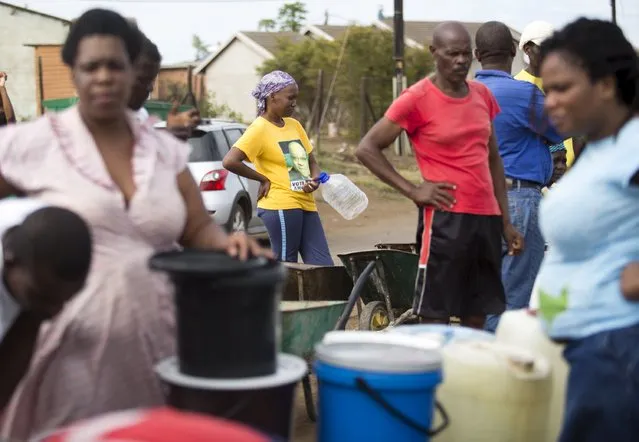
People queue to collect water from a tank as water to homes has been cut off due to the drought in KwaMsane, northeast of Durban, January 20, 2016. (Photo by Rogan Ward/Reuters)
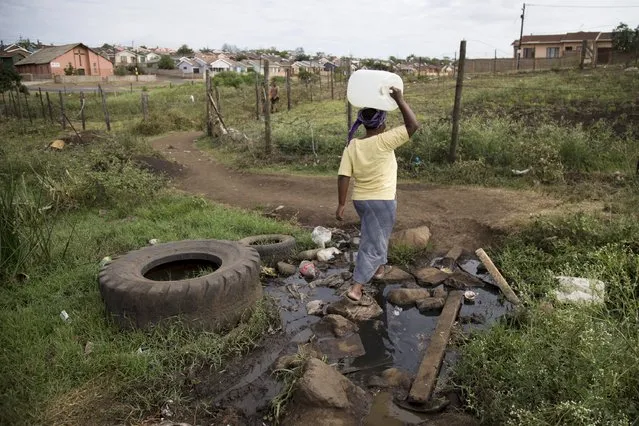
A woman carries water after collecting from a tank as water to homes has been cut off due to the drought in KwaMsane, northeast of Durban, January 20, 2016. (Photo by Rogan Ward/Reuters)
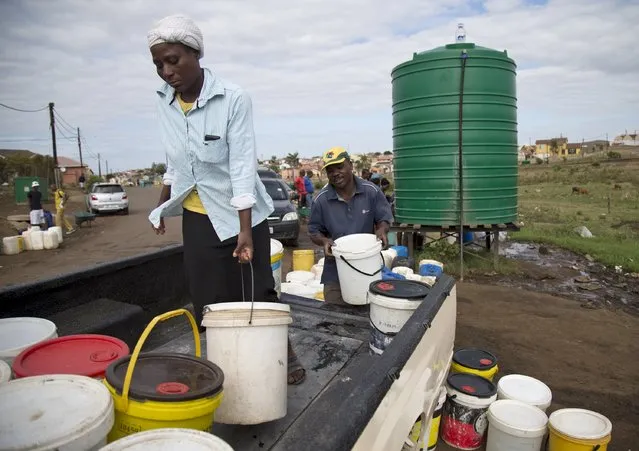
A woman collects water from a tank as water to homes has been cut off due to the drought in KwaMsane, northeast of Durban, January 20, 2016. (Photo by Rogan Ward/Reuters)
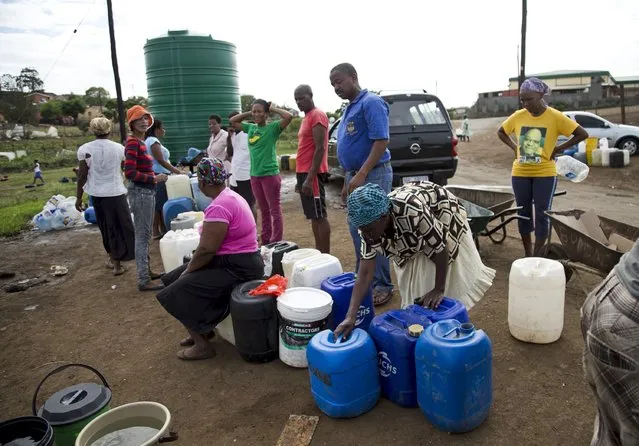
People queue to collect water from a tank as water to homes has been cut off due to the drought in KwaMsane, northeast of Durban, January 20, 2016. (Photo by Rogan Ward/Reuters)
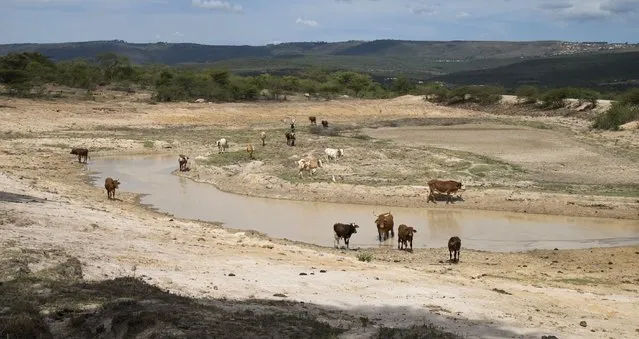
Cattle drink water from a dam, which is almost dry due to drought, near Nongoma, northeast of Durban, January 20, 2016. (Photo by Rogan Ward/Reuters)
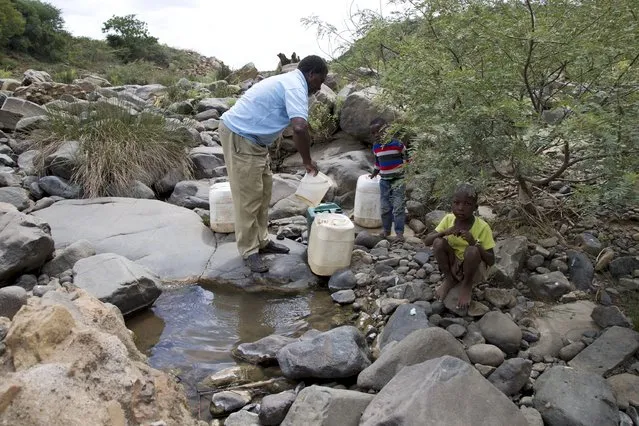
A man and his grandchildren collect water from the Nkuzana River as water to homes has been cut off due to drought near Pongola, northeast of Durban, January 20, 2016. (Photo by Rogan Ward/Reuters)
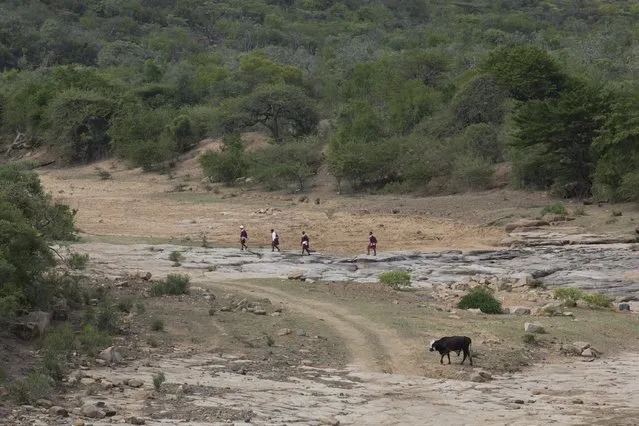
School children cross the Vuna River bed, which is dry due to drought, near Nongoma, northeast of Durban, January 20, 2016. (Photo by Rogan Ward/Reuters)
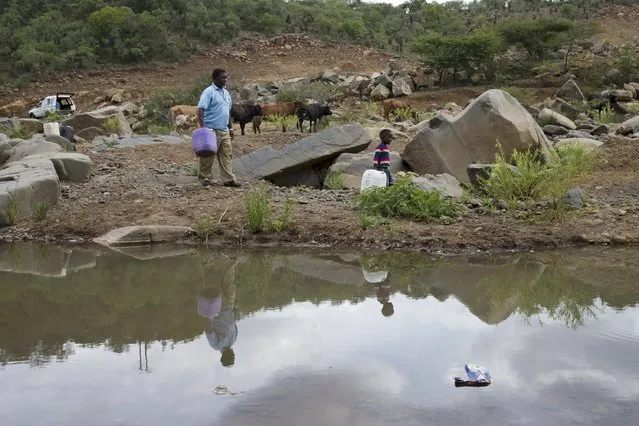
A man and his grandchildren collect water from the Nkuzana River as water to homes has been cut off due to drought near Pongola, northeast of Durban, January 20, 2016. (Photo by Rogan Ward/Reuters)
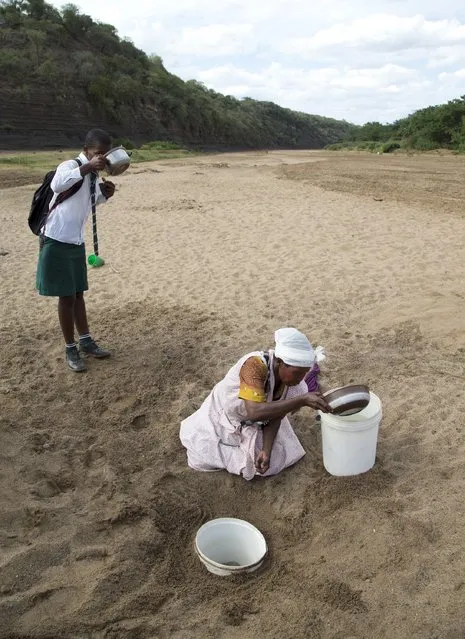
Women get water from a well dug in the Black Imfolozi River bed, which is dry due to drought, near Ulundi, northeast of Durban, January 20, 2016. (Photo by Rogan Ward/Reuters)
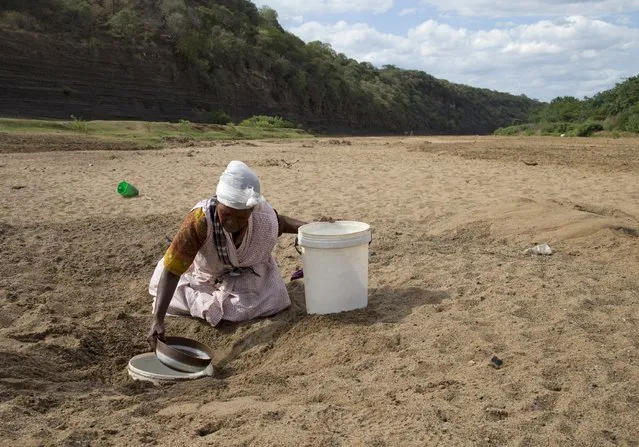
A woman gets water from a well dug in the Black Imfolozi River bed, which is dry due to drought, near Ulundi, northeast of Durban, January 20, 2016. (Photo by Rogan Ward/Reuters)
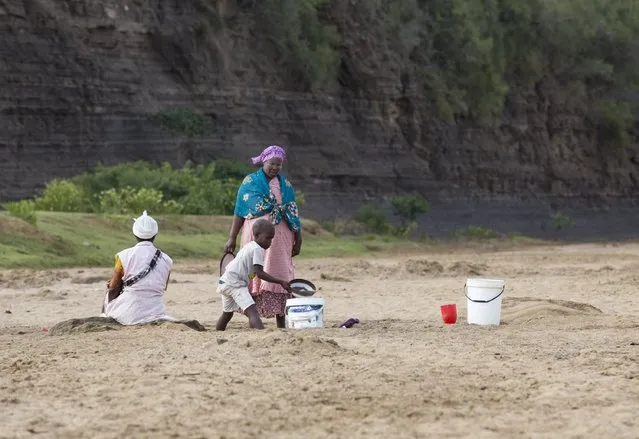
People get water from a well dug in the Black Imfolozi River bed, which is dry due to drought, near Ulundi, northeast of Durban, January 20, 2016. (Photo by Rogan Ward/Reuters)
22 Jan 2016 10:06:00,
post received
0 comments
